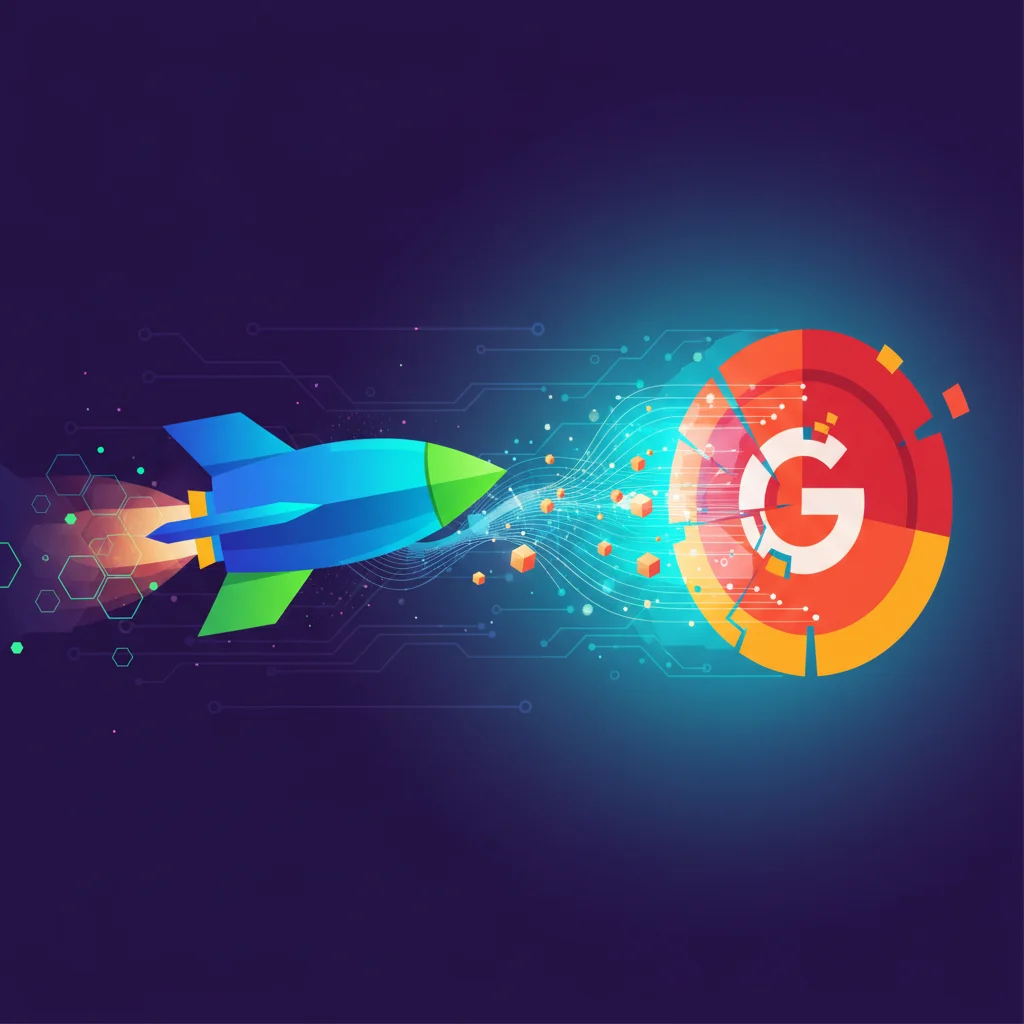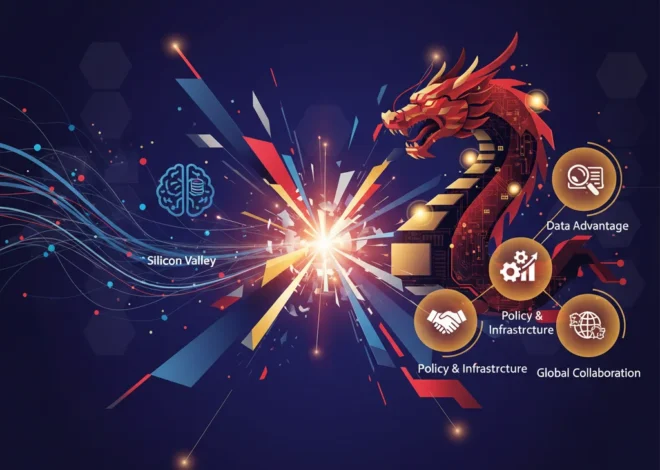
OpenAI Fires a Shot at Google: Is the New ChatGPT Atlas Browser the Future of the Internet?
In the fast-evolving world of technology, some announcements feel like tremors, while others are seismic shocks. The recent unveiling of ChatGPT Atlas, a new web browser from OpenAI, falls firmly into the latter category. According to a report from the BBC, the company behind the revolutionary ChatGPT is making a bold move to “corral users to its online offerings,” directly challenging the decades-long dominance of Google.
This isn’t just about launching another piece of software; it’s a strategic declaration of war in the battle for the future of information access. For years, the browser has been Google’s uncontested throne room, the gateway through which it directs the flow of the internet and gathers invaluable data. Now, OpenAI is building a battering ram powered by artificial intelligence, aiming to smash down the gates.
But can a startup, even one as formidable as OpenAI, truly rival a titan like Google on its home turf? Let’s dive deep into what ChatGPT Atlas represents, the brilliant strategy behind it, and what this new front in the AI war means for developers, entrepreneurs, and every single person who uses the internet.
What is ChatGPT Atlas? Reimagining the Browser for the AI Era
Details about ChatGPT Atlas are still emerging, but the concept itself is a paradigm shift. For over two decades, browsers have been passive windows to the web. They display information, but they don’t truly understand it. An AI-native browser like Atlas is designed to be an active, intelligent partner in your online journey.
Instead of just a search bar that leads to a list of links, imagine a browser that:
- Integrates AI Natively: No more switching between tabs. ChatGPT’s capabilities would be woven directly into the browsing experience, ready to summarize articles, explain complex topics, draft emails, or write code snippets on the fly.
- Understands Context: The browser could understand the content of your current page, allowing for highly relevant, context-aware queries. For example, while on a product page, you could ask, “Compare this laptop’s specs to its main competitor and find the best price available.”
- Automates Tedious Tasks: Powered by advanced machine learning models, the browser could handle complex automation, like filling out intricate forms, planning a multi-stop trip, or gathering research from a dozen different sources into a single, coherent document.
- Enhances Programming and Development: For developers, an AI-powered browser could be a game-changer. It could debug code directly from a Stack Overflow page, suggest optimizations for a web app you’re inspecting, or even generate boilerplate code based on a project description.
This vision transforms the browser from a simple tool into a powerful, proactive assistant—a core component of OpenAI’s expanding SaaS (Software as a Service) ecosystem.
The Grand Strategy: Why a Browser is OpenAI’s Most Powerful Weapon
Launching a browser might seem like a throwback to the “browser wars” of the 90s, but OpenAI’s calculus is thoroughly modern and incredibly shrewd. This move is about controlling the entire information pipeline, from query to answer, and it’s built on three strategic pillars.
1. The Data Moat: Fuel for a Smarter AI
The saying “data is the new oil” has never been more accurate. Google’s primary advantage isn’t just its search algorithm; it’s the petabytes of real-world user interaction data it collects every second. This data is the ultimate training ground for its AI models. By launching a browser, OpenAI is building its own pipeline to this precious resource. Every search, every click, and every interaction within Atlas can be used to refine its models, making them more accurate, relevant, and powerful. It’s a direct assault on Google’s most valuable asset.
2. Ecosystem Lock-In: From API to Everything-App
OpenAI is executing a classic tech playbook: build a killer app (ChatGPT), then expand into a full-fledged platform. By controlling the browser, they control the primary user interface for the internet. This allows them to seamlessly integrate their other products—like DALL-E for image generation or their API services—creating a sticky ecosystem that keeps users within their walled garden. This is a crucial step in transitioning from a B2B service provider to a consumer-facing behemoth.
3. Redefining “Search” Itself
The most disruptive element of this strategy is the goal to bypass traditional search altogether. Google’s empire is built on serving a list of blue links and selling ads against them. ChatGPT Atlas aims to provide direct answers. Why click through three articles to find the best local plumber when the browser can analyze reviews, check availability, and present you with the top three options instantly? This shift from “search engine” to “answer engine” fundamentally threatens Google’s core business model, an ambition clearly signaled in the stated attempt to rival Google.
This strategic push represents a significant moment in the evolution of artificial intelligence and its commercial applications.
ChatGPT Unchained: Why OpenAI's New Stance on Erotica is a Defining Moment for AI
The Heavyweight Matchup: OpenAI vs. Google
This showdown pits a nimble, AI-focused innovator against an entrenched global superpower. Each has distinct advantages and weaknesses. Here’s a breakdown of the tale of the tape:
| Attribute | OpenAI | |
|---|---|---|
| Core Strength | Pioneering large language models (LLMs) and rapid innovation. | Massive data reserves, global infrastructure, and market dominance. |
| Key Weakness | Lacks deep consumer distribution channels and a mature business model. | The “innovator’s dilemma”—hesitant to disrupt its own massively profitable search ad business. |
| AI Strategy | Disruptive and aggressive, aiming to create new AI-native paradigms. | Integrative and defensive, enhancing existing products (Search, Chrome, Android) with AI. |
| Primary Asset | Brand recognition as the leader in generative AI (ChatGPT). | Unparalleled user data from Search, Chrome, and Android. |
| Ecosystem | Emerging and centered around its API and ChatGPT interface. | Vast and deeply integrated across cloud services, hardware, and software. |
Google isn’t sleeping. It has been aggressively integrating its Gemini AI into Chrome, Search, and its Workspace suite. However, its challenge is retrofitting AI onto a legacy system, whereas OpenAI has the advantage of building its systems around AI from the ground up.
WPP's 0M Bet on Google AI: Is This the End of Marketing As We Know It?
What This Means for You: The Ripple Effects of the AI Browser War
The launch of ChatGPT Atlas isn’t just a corporate battle; it will have tangible impacts across the tech landscape and for everyday users.
For Developers and Tech Professionals
The nature of programming and web development is on the verge of a major shift. An AI-native browser could become an indispensable part of the development toolkit. Imagine a browser that doesn’t just inspect elements but suggests CSS improvements, optimizes JavaScript performance in real-time, and integrates directly with GitHub to help you write and review pull requests. This level of intelligent automation could dramatically accelerate development cycles and lower the barrier to entry for complex coding tasks.
For Entrepreneurs and Startups
Disruption creates opportunity. The rise of a new OpenAI-centric ecosystem opens the door for innovative startups. Entrepreneurs should be asking: What “plug-ins” or extensions can be built for this new AI browser? What niche services can leverage its unique capabilities? Just as the App Store created a billion-dollar economy, a new platform built on conversational AI could spawn a new generation of companies focused on everything from hyper-personalized education to AI-driven financial planning tools.
For the General Public
For the average user, the promise is a smarter, more efficient, and more personalized internet. The downside, as noted in the BBC’s framing of the announcement, is the push to “corral users” into a single company’s offerings. This could lead to stronger filter bubbles and raises significant privacy concerns. Your browser will know more about you than ever before, making the choice of who to trust with that data more critical than ever.
Your Cloud is Down: Why Your Best Defense Against AI Cyberattacks is a Pen and Paper
The First Shot Has Been Fired
The launch of ChatGPT Atlas is far more than a simple product release. It’s a bold, strategic gambit to reshape the internet’s foundational layer. OpenAI is betting that the future of online interaction isn’t about finding information but about getting answers, and that the best way to deliver those answers is through an intelligent browser that acts as a true digital co-pilot.
While Google’s dominance is formidable, the history of technology is littered with fallen giants who failed to adapt to a paradigm shift. Whether ChatGPT Atlas becomes the Netscape or the Internet Explorer of the AI era remains to be seen. But one thing is certain: the browser wars are back, and the internet will never be the same.


